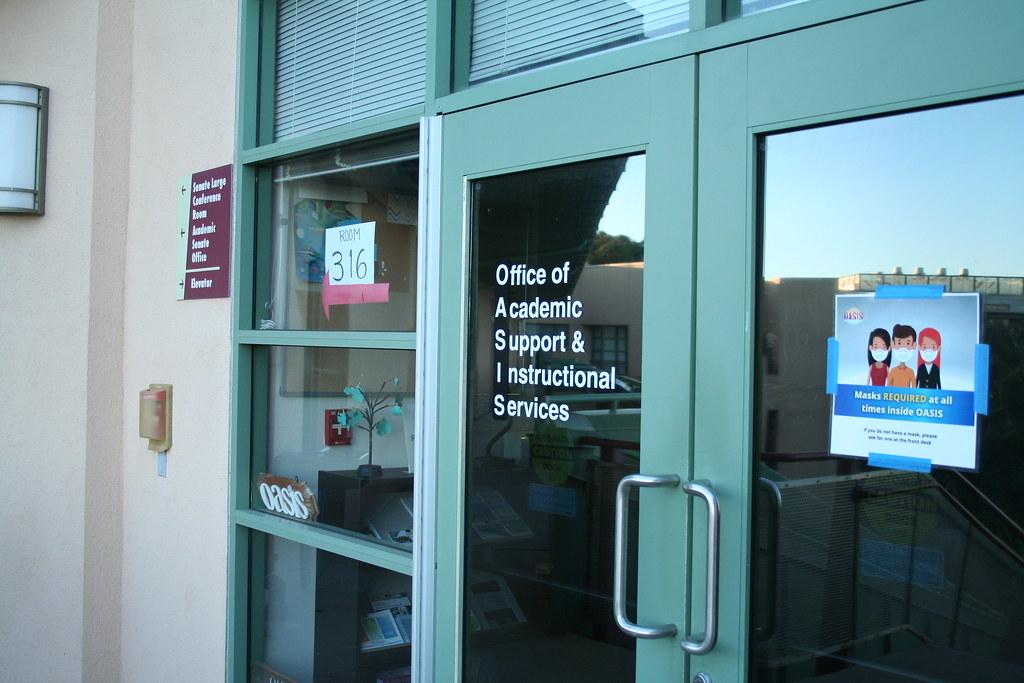The Underground Scholars Initiative (USI) is attempting to establish a rehabilitation route from prison to school through recruitment, retention, and advocacy for incarcerated, formerly incarcerated, and system-impacted students.
In the spring of 2013, the Underground Scholars Initiative was established at UC Berkeley as a student-led organization, headed by previously incarcerated and system-impacted students. As a result, similar organizations were established across other UC universities.
The Underground Scholars Initiative chapter at UC San Diego was formed in fall 2019, founded by Bobby Edwards, Jose Lumbreras, Kerry Keith, Alessandra Torres, and Albert Nava.
The first event, “Education, not Incarceration,” was held right after the group’s establishment in collaboration with Students Against Mass Incarceration (SAMI), and the featured film “From Incarceration to Education (FITE).” The showing was followed by a discussion panel with formerly incarcerated students from UCSD.
On Nov. 16, USI held the final meeting of the quarter. This fall, USI started its partnership with Tutors for Juvenile Hall Initiative (TJHI). In this partnership program, USI plans to visit the local juvenile and mentor youths to create meaningful connections to those in higher education.
Beyond organizing several in-person workshops, USI has held several zoom meetings with state and federal representatives to discuss budget allocation. USI intends to hold a fresh-start workshop to address the criminal records of those incarcerated before.
Starting Winter 2022, a Cross-Enrollment program will be launched to invite justice-impacted community college students to take courses at UCSD.
“We are trying to make contacts with local community colleges and state colleges to encourage them to make relationships to help transfer students to get accepted into UCSD and create a kind of network there,” said Bobby Edwards, a graduate student in the history department.
During the COVID-19 pandemic, USI tried to build a minor program for Carceral Studies. However, this minor-establishing process didn’t run successfully because of the limited interests displayed in the undergraduate community.
“But the footwork is still productive. We contacted a lot of community groups and kind of strengthened our network. They’re pushing prison education programs in the region and other community partners, nonprofits, etc.,” Edwards said.
Last year, USI partnered with the Office of Academic Support & Instructional Services (OASIS) to establish the Triton Underground Scholars (TUS) program in the late summer, with the purpose of creating a receptive culture and supportive system for formerly incarcerated and system-impacted students at UCSD.
Jose Lumbreras, Sara Solorzano, and Elizabeth Hall, as a part of the initiative, are the first three student staff members of the TUS program.
With resources provided by the OASIS resource hub, the transfer progress is a great focus of TUS.
The overall application process was further introduced by Sara Solorzano, an Eleanor Roosevelt College student majoring in international studies with a focus in sociology, and who is also the Outreach Coordinator for TUS.
“Liz is connecting us to faculty and staff members within various departments at the UCSD campus,” Solorzano said. “An example, are the UCSD writing tutors from the writing center hub, they help the community college students that we reach out and are connected with.”
A decent number of program coordinators are formerly incarcerated individuals who are succeeding beyond the stigma.
“I feel like it’s a relief — to be able to have that personal aspect actually be spoken about, and have a program to help you with that. [The USI community] doesn’t judge you about your past, or disqualify you for any reason, [just] because they don’t know the full story,” Solorzano said.
Solorzano also shared her personal experience from USI. Inspired by her older brother from UC Berkeley, she decided to get involved in USI at UCSD:
“I was in community college — I’m a transfer student and I never spoke to any counselors or to any other students about my past,” Solorzano said. “And [in the USI group] there’s no judgment, instead we are working together and looking at ways to get out there and help others.”
“We were not just in terms of like students who are producing knowledge and contributing to the educational environment,” Edwards added. “Certain worldly knowledge, understandings, and experiences that are a positive contribution to the production of knowledge [and] to the university’s community in general.”
“Organizationally, this is an undergraduate group, but really it is a community for anyone. This issue has infiltrated every aspect of our society, and no family gets removed from this system … We’re all valuable human beings, and we just need to be nurtured in a way that will inspire the light to shine out in this group,” said Earl Warren College student Colleen Murphy, President of USI at UCSD.
The TUS office has officially established its office space at the beginning of Fall Quarter. According to Murphy, several group members started as full-time staff to work and dedicate themselves to TUS.
The purpose, pointed out by Solorzano, is to create this space at the university that doesn’t judge but understands, welcomes, and empowers others to continue with higher education and follow their dreams.














